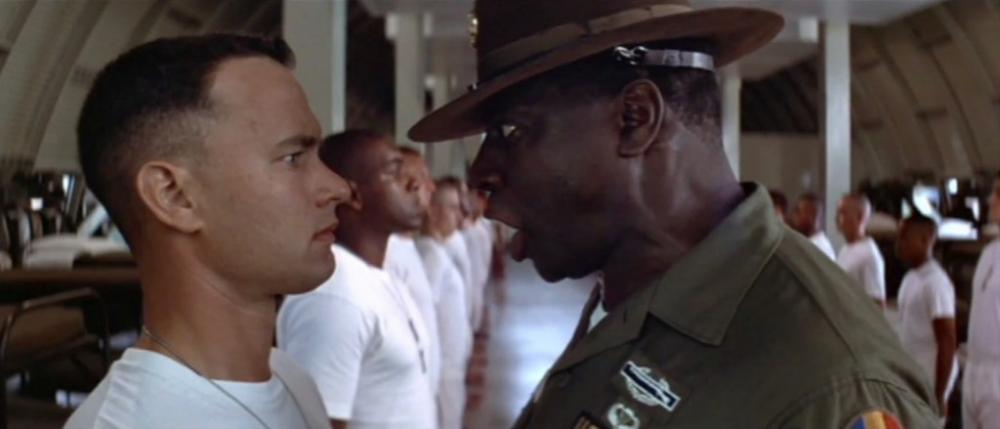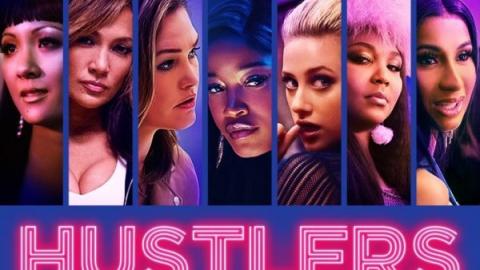Why the Media Suddenly Hates Forrest Gump
Share with friends

By Isaac Simpson
The media, just like everything else in contemporary society, seems to be subject to a widening cultural divide. On one pole sits mainstream news sources. These tend to be endlessly positive and allergic to real criticism, with headlines often written in the voice of an excited teen girl. For CNN, Salon and The Huffington Post everything is, like, the most amazing thing ever. Their saccharine headlines attract readers like excited flies by appealing to their deeply ingrained groupthink - the desperate desire to think everything is alright. Negative or angry viewpoints are shunned by these sites; even the New York Times asked recently if we should eschew negative reviews altogether.
On the other side, the dark side, we have iconoclastic sources like Vice and (to a lesser degree) Slate and thousands of angry, snarky blogs who have learned to generate clicks by saying that everything the mainstream sources declare is the best thing ever is actually the worst thing ever. In that vein, they use provocative headlines designed to create a shocking reaction of anger or surprise in the reader, and induce them to click on a link. Us readers bounce back and forth - clicking on a headline we agree with because it makes us feel good, then the one that makes us angry, then back again to the positive, over and over until it's time to watch TV.
Some people call the writers of headlines like these "trolls." The meaning in the internet context operates well with both traditional meanings of the word "troll," as in trolling for fish and/or a troll waiting under a bridge. In an era when people are subject to a stream of 24/7 information, troll headlines are unfortunately a necessary evil. We have to get your attention somehow, even if the underlying article is much more nuanced and substantial than the provocative headline (e.g. the title of this article). One writer, for example, who wrote one of Salon.com's most-read pieces was disgusted at how the Salon editors changed his headline to something he didn't mean in order to generate clicks.
The recent theatrical re-release of Forrest Gump in celebration of its 20th Anniversary has unleashed a bevy a troll headlines condemning the American classic. Here are four examples that range the troll gamut, and illustrate how the media's dark side scrambles to cover the same news in a negative light.
In "What the Fuck is Going on in Forrest Gump" Vice writers Dave Schilling and Jamie Lee Curtis Taete use a set of bullet points to question the realism of a movie about a mentally retarded man who inadvertently becomes the most important figure in modern history. It was clearly put together in about five minutes (it's not even an article, just literally a list of questions) and contains neither funny or interesting critiques of the film. The one slightly intriguing line is "Why is every liberal activist in this movie a sexual deviant, drug addict, or abuser?" but even that reads like something a middle schooler might write on FormSpring. This article is an empty shell, nothing but bait floating in the digital waters waiting for bites.
Hitfix's "8 Reasons Why Forrest Gump Totally Sucks," manages to be slightly more inquisitive than the Vice piece, although it shares the same disgust with the film's lack of morality. "Conform or perish might as well be the movie's tagline," the writers point out. It nitpicks away at the shoddy history and, surprise surprise, the movie's lack of political correctness, "The movie's one black character does nothing but be dumb and die," and "Mrs. Gump is written as a lazy cliche." This piece has the sophisticated distinction of being a picture-based clicking list, which gives Hitfix eight clicks for every one visit (if you're dumb enough to click all the way through). Despite an utter lack of poignancy, it was shared nearly 600 times on Facebook.
Then of course there's Buzzfeed's obligatory "9 Reasons Why Forrest Gump Is Actually the Worst" which includes all the same nagging about political correctness and racism and mysogyny, with a few more bullets about the film's (I believe intentional) omission of a political stance. "Every time politics come into Forrest Gump's life, he "transcends" politics" and "People who do have political beliefs in this movie are hypocrites or fools."
Only LAWeekly's lead film critic Amy Nicholson provides some substance to the critique. That said, the bullets in Nicholson's "We Need to Talk About Forrest Gump" are eerily similar to Vice's "What the Fuck is Going on in Forrest Gump." Both pieces admonish Forrest's mother's sleeping with the principal to get Forrest into school as misogynistic. Both pieces ask why Forrest didn't end up with PTSD after the war. Both pieces wonder if the film presaged George W. Bush's rise to power. Nicholson, however, took the time to research and write an actual story, not just an empty headline, and recounts several valuable facts, including the story of the novel Forrest Gump upon which the movie is based. Apparently the original author was so disgusted by the film version (and at Paramount for trying to screw him out of his fair share of the box office) that he wrote a sequel called Gump & Co. in which the hero accidentally screws up all the things he's accidentally achieved in the original. The literary sequel is further detailed in MTV's version at the same piece, "9 Insane Plot Points from the Forrest Gump Sequel.'"
You would think that before pitching such an article to their editors, these journalists would have at least googled "Forrest Gump sucks" to see if they were writing an article that had already been written, but obviously they didn't. Or they did do it and their editors didn't care in light of the prospect of millions of hate-clicks.
Whether you love Forrest Gump (which I would say a majority of Americans do, especially those who feel nostalgic about it, like many millennials) or hate Forrest Gump or even don't really feel strongly either way, you're going to be intrigued by an article that tells you Forrest Gump sucks simply because it's an attack on something so innocent and sweetly beloved. But if that's all the article says, then you've been duped.
On the other side of the equation we have the overly sweet positive pieces, that are essentially a regurgitation of a press release created by Paramount, that have their own version of troll headlines. People Magazine''s "15 Ways Forrest Gump Changed Pop Culture - And is Still With Us, 20 Years Later" is just as empty as "What the Fuck is Going on in Forrest Gump," and maybe even worse for the reader because it's essentially an advertisement.
At the end of the day, we need both sides of the equation, the positive and the negative, the critic and the fan. I do not in any way intend to condemn the publications discussed herein as evil (they're some of the best we've got) or the writers as hacks (same). I myself have written for both Vice and LAWeekly, and have produced my fair share of click-bait articles. In today's environment, it's an unfortunate necessity.
But, if we're going to editorialize about something beloved, blindly supporting it or criticizing it just for the sake of criticizing it are equally empty. The detriment is in the packaging. To write about something, we don't have to hierarchize it as "the best," or "the worse," or swear at it like Vice does. If we're going to use troll headlines to draw people in, we at least owe them something real and digestible once they've committed. We should do what Amy Nicholson does and, at the very least, tell a story.
Follow Isaac on Twitter




